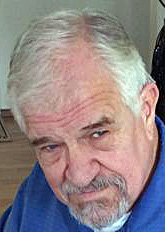
In the first half of the 21st century, students took their education seriously and ran on a hectic schedule. They did not have the luxury of spending their free time playing video games, as their parents had, or protesting wars and bureaucracies, as their grandparents had done.
Still, Hillary and Jeff found time to meet and compare notes over a mid-morning snack. “Dad was telling me about the old days again last night,” Hillary said. “You want half of my sandwich?”
“Thanks,” said Jeff. “You mean the old three-miles-uphill-both-ways-through-the-snow routine? Have some of my chips.”
“No, I think he’s given up on that one. He was going on about all the schools having to be exactly alike, and all the students, too, so the educators could measure the ‘product’ they were turning out.”
“Ugh. That sounds depressing. When did it change, and how did schools get to be the way they are now?” Jeff wasn’t really very interested, but he could tell Hillary was.
“It seems the students tried to change things in the 60s, but they went about it wrong, trying to prove they were smarter than their parents.” Hillary lifted an eyebrow in Jeff’s direction.
“Bet that went over like a soup sandwich. So what finally happened? When did the education establishment finally get the message?”
“Parents, including lawmakers, ultimately realized they were spending more and more on education, and their kids were learning less and less.”
Jeff’s eyes lit up at last. “Oh, yeah, I was surfing the Net over the weekend and ran into some old guy from Oregon. He was telling me about something called charter schools.”
“Charter schools? What’s that?”
“Well, it seems almost everyone had a different idea about what they were supposed to be and do. People had noticed that many private schools, especially church schools, appeared to be ‘producing’ more and better education for less money than the public schools.”
“Were the public school teachers that bad?”
“Not at all. Most of them were truly dedicated to helping the younger generation become responsible, honest, productive citizens. But they were bound by so many restrictions, red tape, and conflicting goals laid on them by legislators and administrators that it was almost impossible for them to do their jobs.”
“And charter schools changed all that? How did they work?”
“The idea was to provide state funding, but allow local control, so that an individual school could experiment with alternative philosophies or goals in education, as long as they met certain core requirements. It didn’t work, of course, except in certain isolated examples.”
“Sounds pretty good to me. Why didn’t it work?”
“This old guy in Oregon said everybody thought it was a great idea ‘if you do it right.’ The problem was that they couldn’t get much consensus on how to do it right. One faction wanted to give the schools almost unlimited independence, and another wanted to keep them tightly under the thumb of central authority.”
“I can see how that would be an obstacle. So the whole thing was a failure?”
“Not exactly. Even though the Charter School Movement as such fizzled out, and in most cases never got off the ground, it inspired sort of an undercover guerrilla movement within the public schools themselves.”
“Really? How did that work?”
“Individual teachers, school boards, and even some administrators began quietly putting into practice what they understood of the basic principles of ‘charterism,’ and eventually the schools evolved into their present glorious condition.”
“And aren’t we eternally grateful for that! Did this old Oregonian mention when the turning point was: the ‘defining moment,’ as the old folks say?”
“He did, in fact. He said as near as he could tell, it was a school board vote back in 1997, concerning a little school east of Portland called Cottrell. Whoops, there’s the bell. We’d better get back and string those silly beads and mold that modeling clay.”
“Right! Ms. Hoffman says if we get done early, she’ll try to get a couple of volunteers in here to teach us how to read.”
No Comments
Leave a comment Cancel